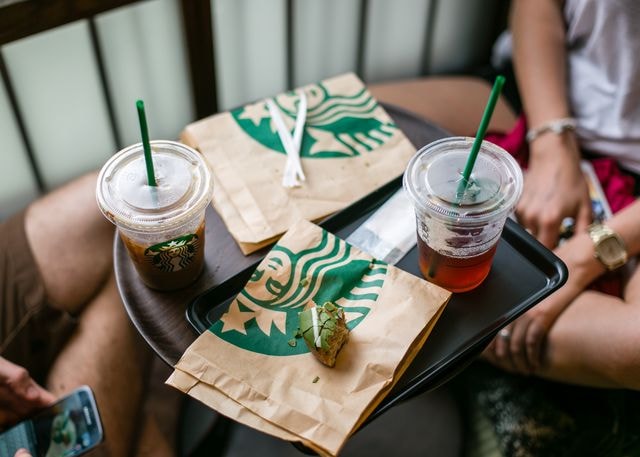Will plastic straws be 'killed'?
Plastic straws will soon be a thing of the past at Starbucks, Marriott hotels, American Airlines and even EU countries.
The days of plastic straws are numbered. 2018 was the year of the anti-single-use plastic campaign, spearheaded by some of the world’s biggest businesses and governments.
In July, Starbucks announced that by 2020, there would be no trace of plastic straws in its 28,000 stores worldwide.
|
Starbucks will ditch plastic straws and research the production of recycled cups by 2020. Photo:Bloomberg. |
Most recently, the world's largest hotel group Marriott announced that by July next year it will completely "eliminate" plastic straws and stirrers at all 6,500 of its hotels and resorts.
Plastic straws are among the top 10 items found in beach cleanups. About 8.5 billion plastic straws are thrown away every year, contributing to the 8 million tons of plastic that end up in the ocean each year, which environmentalists say is equivalent to a truckload of plastic being dumped into the ocean every minute. Last month, a whale was found dead in Thailand after swallowing 80 plastic bags.
Plastic straws are products that are used for a very short time but take up to 500 years to decompose.
Pressure against them has mounted since a viral video in 2015 showed a sea turtle writhing to free itself from a 10-centimeter plastic straw lodged in its nose.
These items are simply too small and light to recycle, so many of them end up in the ocean.
Seattle became the first major U.S. city to ban plastic straws in July, along with disposable cutlery. San Francisco has also approved a plan to phase out plastic straws and stirrers, according to preliminary results.New York Timesnew news
Additionally, in the US, council members of Washington DC and New York recently proposed to stop the circulation of this series of products.
In the UK, if nothing changes, next year the sale of plastic straws, stirrers and cotton buds will be banned altogether.
Prime Minister Theresa May said: "Plastic waste is one of the world's biggest environmental challenges. Britain will be at the forefront of tackling the problem."
In May, the European Union also presented a plan to phase out 10 types of single-use plastics with alternatives. They contribute to 70% of the world's ocean waste.DAt the top of the list of items to consider giving up are straws, spoons, forks and cotton swabs.
|
The world's largest hotel chain is helping the Earth avoid 1 billion plastic straws in the next year. Photo:Handout. |
While the ban on plastic straws is a threat to the fast food industry, the giant McDonald's has announced that it will "kill" them from 1,300 locations in the UK from September, with plans to complete the process next year. It is estimated that they serve 1.8 million plastic straws every day in the foggy island.
Bon Appétit, a large US restaurant chain with 1,000 cafes in locations such as universities, museums, and offices, also stopped serving plastic straws since May.
"When I heard the statistics and learned how harmful straws – a convenient product – are, my reaction was: we have to change this," CEO Fedele Bauccio said in a press release.
Paper is a popular alternative, but Bon Appétit has also considered making straws out of spaghetti, bamboo or grass.
In the aviation industry, major airlinesAlaska Airlines and American Airlines recently announced that they will stop providing plastic straws for in-flight service.
But Starbucks is the biggest company to date to say it will eliminate plastic straws. In a July 9 announcement, the coffee giant pledged to phase out straws by 2020. Starbucks will also partner with McDonald's to develop a cup that is recyclable and biodegradable.
Marriott International is the latest big name to say no to plastic straws at its hotels around the world. The company estimates it will have avoided the use of about 1 billion straws and 250 million stirrers by July 2019.
In February, more than 60 Marriott hotels in the UK banned plastic straws, with customers opting to use biodegradable or paper straws. Other hotels in Costa Rica, Hawaii and Australia have followed suit.
They’re also phasing out mini shampoo bottles in guest bathrooms and replacing them with larger, wall-mounted dispensers, something InterContinental is also implementing. Marriott aims to roll this out to 1,500 hotels, eliminating the 35 million plastic bottles that end up in toilets each year.


